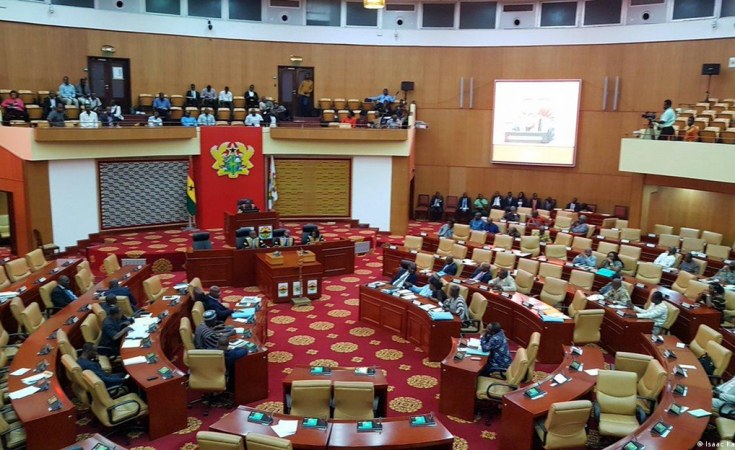Lawmakers in Ghana are calling for legislation to govern the use of artificial intelligence (AI). They argue that the tool could increase inequality and want clarity over machine error. But proponents of AI disagree.
In a small office space in Tamale, about 610 km (379 miles) north of the Ghanaian capital Accra, young people are bridging language barriers online by translating articles written in English into local languages using artificial intelligence (AI).
For them, Ghana should be thinking about leveraging the potential of AI rather than worrying about its shortcomings and seeking to come up with regulations.
"It is backward thinking," Mohammed Kamaldeen Fuseini, one of the young men specializing in IT, told DW. "When I heard the news, I was shocked to the bone."
"While others are now thinking of advancing in AI, we are thinking of regulations that will tie down the AI," Fuseini added -- referring to a recent heated debate in Ghana's parliament, where some members proposed the establishment of an AI council.
Ghana urged to monitor the use of AI
During the debate, Tamale South legislator Haruna Iddrisu sought to justify why the government should regulate artificial Intelligence. He said he wanted the country to set up an artificial intelligence council to supervise the use of AI.
"Who bears criminal liability to machine error when you take advantage of artificial intelligence?" Iddrisu posed. There needs to be more scrutiny on the use of AI, particularly in educational institutions, according to the former minister of communications.
"Is it taught at the primary level? Is it taught at the secondary and university level in Ghana?" the 52-year-old politician stated. "We need to work as a country to avoid being victims of digital colonization.
Who should take the blame for AI errors?
According to recent statistics, Ghana has an average internet penetration of 72%, creating a conducive growing digital environment, especially for young people. IT experts like Dr. Arnold Mashud Abukari in Tamale told DW that he disagrees with the fear of mistakes when using AI.
"When we say artificial intelligence, it just means that we are translating human activities or reasoning into a machine," Abukari said.
"So, suppose the parliamentarians and those who argue in that line want to limit their argument to error. In that case, it means that if the artificial intelligence or the machine can be error-prone, the individuals who made it are also error-prone."
Abukari explained that AI is based on algorithms, which are tried and tested based on several simulations and then confirmed. "When ABCD is done, we get the expected results, and that is what is implemented. So from the point of error-prone machines, I doubt if that is good enough to call for the restriction of AI."
What is artificial intelligence?
According to UNESCO's World Commission on Ethics of Scientific Knowledge and Technology, artificial intelligence refers to machines capable of imitating certain functionalities of human intelligence -- including such features as perception, learning, reasoning, problem-solving, interaction and producing creative work relying on algorithms.
In Ghana, the use of artificial intelligence is still in its infancy, with most people having no more than a rudimentary understanding of the technology.
"Artificial intelligence is one domain in information technology that has caught up so fast in such a way that countries and individuals need to put themselves in readiness to harness the potential that comes with it," IT expert Abukari said.
The AI generation
While concerns around the use of AI are worldwide, it is becoming an issue between two generations -- those born before computers and the so-called digital natives in Ghana.
Lawmaker Iddrisu pointed out that as much as AI has potential, it also has negative consequences. "Artificial intelligence in developing countries poses a potential risk," Idrissu warned, stressing that the new technology may build upon and exacerbate existing inequalities in developing countries and more developed regions."
Google's AI research in Ghana
In 2018, Google opened its first African AI research center in Accra.
The US-based tech giant hopes to support the continent's expanding capabilities in artificial intelligence by collaborating with regional universities, research institutions and governments to explore AI's possible applications in Africa.
"Artificial intelligence will push some people out [of their jobs], but it will also create more jobs," Abukari said, calling on the Ghanaian government to embrace those jobs.
"Our educational system, are they putting up courses that would visualize the kind of jobs and opportunities that artificial intelligence will bring us?"
Edited by: Keith Walker
While you're here: Every weekday, we host AfricaLink, a podcast packed with news, politics, culture and more. You can listen and follow AfricaLink wherever you get your podcasts.


